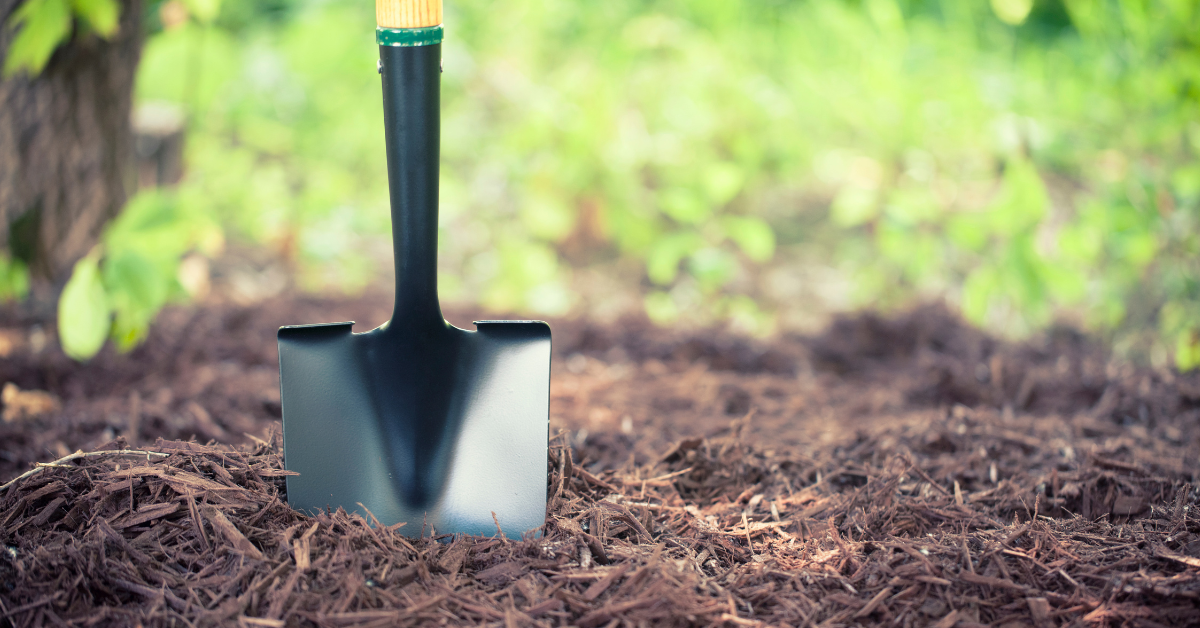Spring is arriving, and that means it’s time for mulching. If you’re wondering what you need to know about mulch, here are just a few of the benefits it provides.
Benefits of Mulch
- Weed suppression: Mulch slows the growth of weeds by preventing sunlight from reaching them.
- Soil temperature: It keeps soil cool in the summer months, while it provides insulation and guards against frost in the winter.
- Retain moisture: Mulch slows evaporation of water from within the soil, allowing it to maintain its moisture level. It should be noted that while this is a benefit to many plants, there are some plants which will grow better in a dryer climate. These plants may be hurt when mulch is used.
- Improve soil: As it decomposes, mulch gives the soil nutrition. It also boosts the healthy organism growth activity which allows them to oxygenize the soil.
Common Types of Mulch
There are many different types of mulch available. Some are organic while others are inorganic. Each type of mulch may have its own unique characteristics, advantages, and disadvantages. Therefore, what to look for in mulch depends upon your intended usage.
Organic Mulch
Organic mulch is natural and consists of living materials. Some examples of organic mulch include:
- Grass and leaves: In the fall, If you mow your leaves, along with your grass, instead of just raking them, you create a natural mulch that helps your lawn. This method also helps the environment by reducing the amount of plastic bags used to contain the leaves.
- Straw: This is an effective mulch that you can use all year long. It will hold water in the soil for longer periods of time, and it stops the soil’s temperature from changing too quickly. Furthermore, as it breaks down, it creates a nutrient-rich compost which helps the soil to thrive.
- Shredded tree bark: This is one of the best kinds of mulch for landscaping as you only need to spread it around evenly to distribute it. In addition to being easy to use, it’s inexpensive and decomposes slowly. This type of mulch works especially well with the addition of organic fertilizer.
- Compost: This combination of broken down organic materials is highly regarded by gardeners. It’s an ingredient that is highly beneficial to the environment as it helps keep dumpsites and landfills from overflowing with waste.
Inorganic Mulch
This form of mulch is crafted from rocks and gravel or can be created from man-made materials. Inorganic mulch may at times be preferred over organic mulch because it won’t break down. Some examples include:
- Gravel, pebbles, and rocks: This can include volcanic rock, river rock, and marble chips. These can all be used in a stunning landscaping design.
- Black plastic mulch: This can raise your vegetable yields while also giving you exceptional weed control. However, be aware that with heat, this type of mulch can contribute to your plants’ root rot.
- Rubber mulch: Recycled tire rubber can be shredded and dyed to appear more naturalistic and resemble the bark of a tree. You will often see this material on playgrounds because rubber has a bouncy quality which allows kids to play safely outdoors.
- Metallic reflective mulch: This shiny mulch reflects sunlight and is very appealing. It also keeps bugs and pests away from your backyard.
How Much Mulch Do You Need?
In addition to thinking about the various mulch types for landscaping, you’ll also need to consider exactly how much you’ll need. If you don’t get enough, you’ll spend extra time obtaining more. If you overestimate, you could end up spending a lot more money than you need to.
At RELS, we’re proud to offer our customers a mulch calculator so they know they’re purchasing the correct amount to achieve the results they desire.
Helping With Your Mulching Needs
When you want to protect your soil and increase your yard or garden’s appeal, you can achieve this with both organic and inorganic mulch. We can help with all of your landscaping and mulching needs. Get in touch with us today!

